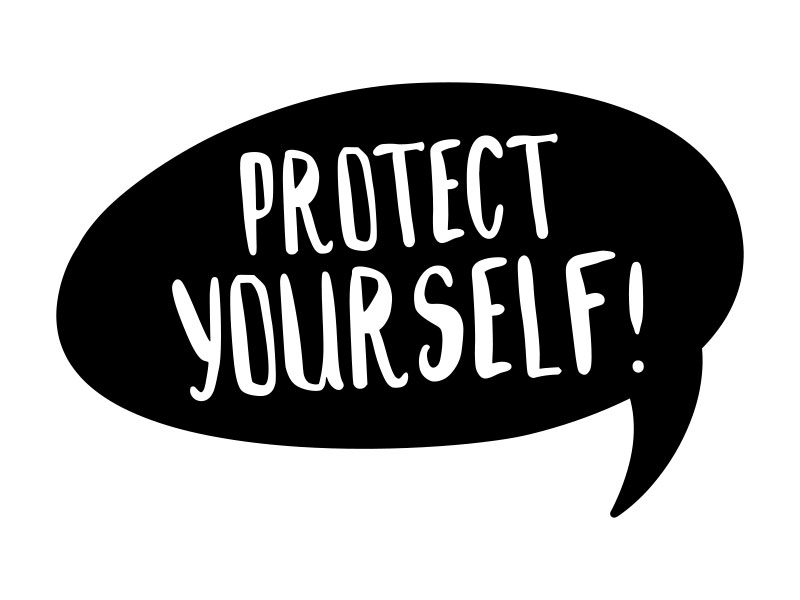Everyone has a role to play in building an inclusive and respectful campus environment.
Through education and training, members of the SMU community will learn what constitutes harassment and violence, how to intervene and respond when in such situations, and how to form and cultivate healthy relationships – on or off campus.
The training programme offered to students in an online module focuses on understanding consent, having respect for one another, fostering healthy relationships and active bystander intervention. In addition, students may also wish to download the e-guide linked below for more information on these topics. This will help create a safe space, free from fear or violence, for learning and working here at SMU.
Click here for online module Download E-GuideConsent and Respect: watch the video below to understand what this means.
Copyright ©2015 Emmeline May and Blue Seat Studios

Consent
Sexual consent means a person explicitly, willingly and voluntarily agrees to engage in sexual activity with the other; he/she must be free to make his/her own decision. There must not be any threat, intimidation, pressure or guilt-tripping to make one party commit to a sexual act.
If a person is mentally or physically incapacitated (so that he/she cannot understand the fact, nature or extent of the sexual situation), there is no consent; this includes conditions due to alcohol intoxication, drug consumption, being asleep or unconscious.
Consent must be clear. If it is not clear, the sexual act may be deemed as criminal.
Do I Have Consent?
- You should stop if your partner is intoxicated, asleep or passed out, has said “no”, has not said “yes”, kept silent or is unresponsive, or is under the age of consent
- You should pause and talk if you are not sure what your partner wants, you feel like you are receiving mixed signals, you have not talked about what you want to do or if you assume that it is ok to proceed because consent was given previously
- You may proceed (but keep communicating) if both of you clearly express comfort with the situation, reached a mutual decision about how far to go, or feel comfortable and safe stopping at any time

Saying "No"
All words, behaviours and circumstances of both parties are crucial in deciding whether consent exists.
Even if a party does not say “no”, it does not mean that there is consent; objection can be implied from the context and the relationship between the parties (e.g. if one party is threatened, coerced or forced against his/ her will to commit a sexual act).
Everyone has the right to say “no” at any point. Consent to some sexual acts (e.g. kissing, oral sex) does not imply consent to other sexual acts (e.g. penetration).
A person might consent to a sexual act at one point, but say “no” later. A person’s right to refrain, stop or object to a sexual act must be respected at any point.
How to say NO
Turning down a stranger that you just met
- Say no firmly – do so immediately and in a firm manner. Do not give them any doubt to your intentions by smiling, apologizing or saying maybe. Maintain a safe distance, move or turn away if they continue to be persistent. The priority is to keep yourself safe and seek support where available
- You may choose to lie if you feel threatened or in danger
- Tell them that you need to use the bathroom or have another appointment
*The goal is to put as much physical distance between yourself and the person, get to a public space, and request for help
Turning down an acquaintance
- Be clear – you may want to be gentle but do not compromise on clarity. Remember you do not need to elaborate or make them feel better, and do not joke about it
- Set boundaries and consequences – make it clear that the topic is closed and treat them differently if it would help the situation
- Stand firmly by these boundaries even if they cross the lines you set
- Involve others to help shut down the behaviour where necessary
Turning down the romantic interest of someone after a few dates
- Prepare yourself - make sure you have reasons for rejection, prepare what to say beforehand and choose your words carefully. Make sure your message is clear
- Do not drag it out – while it is important to pick a good time, do not keep waiting for the right time as it could lead them on
- Do it in person – this comes across more respectful and allows you to observe and adjust to their reaction. Find a quiet space unless you anticipate being in danger
- Ease them into the topic, be honest and firm, but gentle, give them time to process it and try not to end the conversation on a sour note
- You may choose to remove them from your social media if you wish

How to Stay Safe in General
- Do not give out your personal information – instead, try to explain that you are not interested and divert the conversation back to the people you are with
- Stay calm – they may react negatively to fear or anger
- Document the harassment if you can – this will help you if you need to report the situation
- Do not accept open drinks
- Stay with your friends or other people you know and trust and leave with them

Dealing with Rejection
Initial anger and feelings of being lost are normal. Rather than acting out, you can reclaim the lost control in deciding how you handle the situation – with understanding, care, dignity and respect for the other party.
- Breathe
Take slow deep breaths to calm down in the immediate situation
- Allow yourself to grieve
To prevent doing something you may regret, excuse yourself and walk away. Take time to feel your feelings, accept them and understand you need time to (and can) feel better eventually.
- Accept the rejection
Understand that reasons for rejection are not as personal as they feel and the decision may have been made after consideration of factors you may not be aware of. Engage in activities that may help distract, lessen or manage the pain better. Try a new activity. Delete their contact numbers to erase temptation. Strengthen other relationships. Respect their decision and work towards accepting the rejection rather than changing it
- You may ask why, but know that it’s a “no”
Seek clarifications if you need, however, do not be defensive or attack the other party. Accept that you are no longer at the forefront of their mind and they have the right to choose whether to address your queries
- Understand you do not have a claim over them
Whether you love someone, or whether you are in a relationship with them or not, you do not have claims to anyone. They are their own person. It is better to be with someone due to mutual love instead of forcing them
